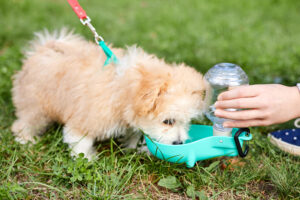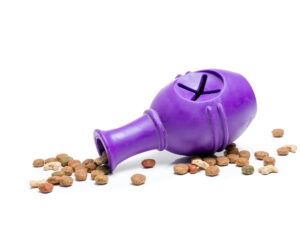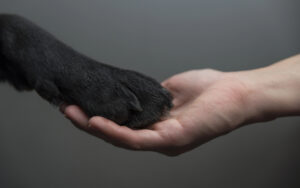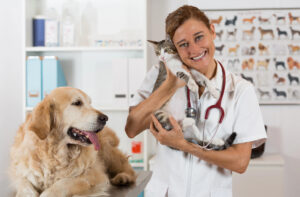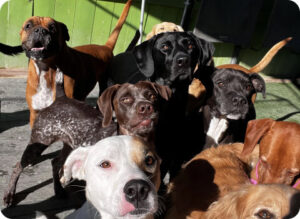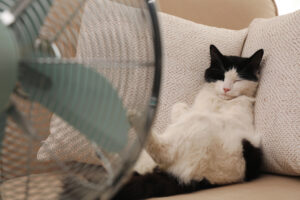If you have recently had a big change in your life, like a death, moving or having a baby your dog could be impacted by this change. Depression in dogs is similar to people and a dog can pick up on a family member’s depression.. The two common triggers for depression for any animal is loss of an owner of companion.
If you notice that your furry friend has become less active, withdrawn or their eating and sleeping habits have altered, this could be signs of depression. These could also be signs of a medical condition, so it’s important to also have your dog checked out by your vet.
Signs of Depression

- Behavior Change: Pay close attention to your dog’s behavior to notice any changes.
- Paw Licking: A dog that licks their paws could be a sign of an infection, joint pain or eczema, but if your dog has other signs along with the paw licking it may be depression.
- Sleeping more frequently: Puppies will sleep 18 to 20 hours each day and adult dogs sleep 12 to 14, if you notice an adult dog is sleeping more like a puppy, this could be a sign of depression.
- Change in appetite: An increase or decrease in their eating all of a sudden.
- Hiding: Since dogs are pack animals, they enjoy being around the family, so if you notice they are spending more time alone, this is never a good sign.
- Mood Change: Seeing your dog mop around, not as playful or active as they were before are signs of depression.
- If your dog is showing three or more of the above signs, they may be depressed.
Treating Depression
Increase their Activity
If your dog likes being outside, allow them extra time outside with a run, walk, or a dog park. Also take the time to play with them, throw a ball, toss a frisbee, or play with them and their favorite squeeze toy.

More Snuggle Time
Be sure that you allow your dog time to snuggle up to you when they want to. Still allow your dog space, you don’t want to overdo it. If your dog isn’t one to come up and cuddle, giving them some behind the ear scratches and pats on the head will also count.
Companionship
If you know that depression comes from losing a companion, you might want to find another companion. You might start with visiting other friends with dogs or setting up dog park play dates, to see if that seems to perk up your pet. If it something viable for you personally and you see the improvement in there, take the next step to add another pet to your home.

Listen to the Radio
Studies have shown that dogs enjoy music, again similar to people, music can uplift our spirits. So put on some of your favorite tunes and dance along with your pooch.
Consistency
Keeping your daily routine the same each day can help calm your pet so they know what to expect each day. A consistent schedule of when to eat, playtime, walks, bedtime and other daily activities is when pets will do best.
Treating depression for your pet can easily be done by rewarding them when they show signs of happiness, taking them on walks, and showing them extra attention. Be sure not to award them for any bad behavior or when they seem sad, as this can be confusing for your dog. If these changes don’t do the trick, be sure to speak with your vet about other antidepressant treatment options.







